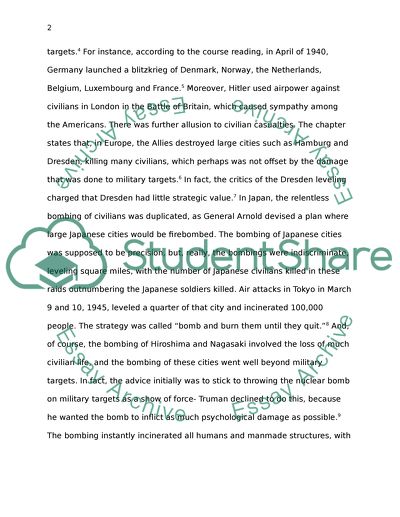Cite this document
(“International Law - Bombing of Civilians Essay Example | Topics and Well Written Essays - 750 words”, n.d.)
Retrieved de https://studentshare.org/history/1469383-international-law-bombing-of-civilians
Retrieved de https://studentshare.org/history/1469383-international-law-bombing-of-civilians
(International Law - Bombing of Civilians Essay Example | Topics and Well Written Essays - 750 Words)
https://studentshare.org/history/1469383-international-law-bombing-of-civilians.
https://studentshare.org/history/1469383-international-law-bombing-of-civilians.
“International Law - Bombing of Civilians Essay Example | Topics and Well Written Essays - 750 Words”, n.d. https://studentshare.org/history/1469383-international-law-bombing-of-civilians.


